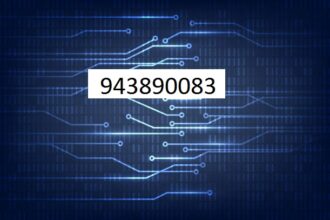When I first stepped into university, I thought I was ready for everything. After all, I’d done well in school, managed deadlines decently, and always had a knack for finding information. But the moment I faced my first research paper, reality hit me hard. I spent hours clicking through random websites, only to end up with weak references, outdated articles, and the sinking feeling that my work wasn’t strong enough. It was overwhelming. At that point, I even considered looking for assignment writing help just to survive the pressure. That’s when I realised that learning how to use digital libraries and academic resources effectively wasn’t just a nice skill-it was a survival tool.
Juggling Deadlines and Information Overload
The toughest part of university, at least for me, was juggling multiple deadlines. At one point, I had a history essay due, a statistics assignment looming, and a group project presentation in the same week. My instinct was to Google everything, but that approach left me drowning in irrelevant blogs, paywalled articles, and sources my professors wouldn’t even accept.
I remember one night when I stared at my half-finished essay at 2 a.m., frustrated because the information I’d gathered didn’t back up my argument properly. That was when I discovered the real power of university digital libraries. Instead of wading through random websites, I logged into the library portal and found access to journals, e-books, and even multimedia lectures. Suddenly, credible information was right in front of me-I just needed to learn how to search smarter.
Learning the Art of Searching
At first, even digital libraries felt intimidating. There were advanced search filters, subject tags, and databases with fancy names I’d never heard of. I’ll be honest: I wasted time because I didn’t know how to use keywords effectively. I’d type vague phrases like “climate change effects,” and then get thousands of irrelevant results.
Over time, I figured out that narrowing down searches with specific terms, filters for publication date, and even Boolean operators like AND/OR changed everything. Instead of scrolling endlessly, I could pull up exactly what I needed, like case studies from the past five years or peer-reviewed articles in environmental science journals. It wasn’t just about finding information; it was about finding the right information in minutes instead of hours.
This shift saved me more times than I can count. I learned to build bibliographies quickly, back up my arguments with credible references, and actually impress professors who often asked where I found such solid sources. The truth? It wasn’t magic. It was simply knowing how to work with the tools available.
Balancing Studies and Personal Life
Another challenge I faced was maintaining balance. Between lectures, part-time work, and personal commitments, there were days when I felt like I had no room to breathe. The thought of spending hours in a physical library after a long shift at work felt impossible.
That’s when the accessibility of digital resources became my lifeline. I could study from my dorm room, a coffee shop, or even during short breaks at work. Having e-books and journals available 24/7 meant I didn’t have to physically carry piles of books or wait for the library to open.
One weekend, while visiting family, I managed to finish an economics essay just by accessing JSTOR and ProQuest through my university login on my laptop. That flexibility meant I could keep up academically without sacrificing time with people I cared about. For me, that balance was key to staying sane and motivated.
Struggling with Difficult Subjects
Not every subject came easily to me. Statistics, for example, was my biggest hurdle. Reading through formula-heavy textbooks often left me more confused than before. What really helped was exploring the multimedia resources available in digital libraries.
Many libraries today don’t just stock text-they also include recorded lectures, video explainers, and interactive learning modules. I remember stumbling upon a statistics resource that broke down regression analysis with visuals and real-life examples. That one video explained more to me in twenty minutes than an entire week’s worth of lectures.
Pairing these resources with practice problems gave me the confidence to attempt assignments that used to terrify me. It wasn’t about being a genius-it was about using what was available in smarter ways.
Seeking Extra Academic Support
Even with digital libraries, there were times I felt stuck. Sometimes it was a matter of not knowing how to structure my essays or how to connect research findings into a coherent argument. That’s when I realised that academic support goes beyond just resources-it’s also about guidance.
I turned to assignment help services a few times, not to have someone do the work for me, but to get clarity on structure, referencing styles, and how to manage workload. Services that offered assignment writing help, essay support, and discreet guidance gave me a sense of direction. For example, I once booked a session to understand how to frame my literature review, and the feedback I received helped me avoid repeating mistakes in future assignments.
Using online assignment help as a supplement to my own research didn’t feel like “cheating.” Instead, it felt like having a mentor walk me through the parts I didn’t understand. Combined with my growing confidence in using digital resources, it made the whole academic journey far less stressful.
Lessons Learned
Looking back, my early struggles with assignments and research weren’t about being “bad at studying.” They were about not knowing how to use the tools available effectively. Digital libraries taught me how to research smarter, multimedia resources helped me understand difficult concepts, and occasional academic support services gave me the push I needed to grow more independent in my learning.
The biggest lesson I’ve learned is this: university isn’t about doing everything alone. It’s about knowing where to look, when to ask for help, and how to adapt. Using digital resources effectively gave me not only better grades but also confidence in my ability to handle complex academic challenges.
Final Thoughts
If I could give one piece of advice to new students, it would be this: don’t underestimate the value of digital libraries and reliable support systems. They’re not shortcuts-they’re smart strategies. Learn how to search properly, use multimedia resources, and don’t be afraid to reach out for assignment help when you genuinely need guidance. The combination of self-effort and the right tools can transform your academic life.
Personally, I found a lot of growth by using university resources alongside occasional academic guidance. And if you’re ever looking for a trustworthy option, I’d recommend exploring services like Assignment in Need (assignnmentinneed.com), which proved to be a reliable support during my journey.

















